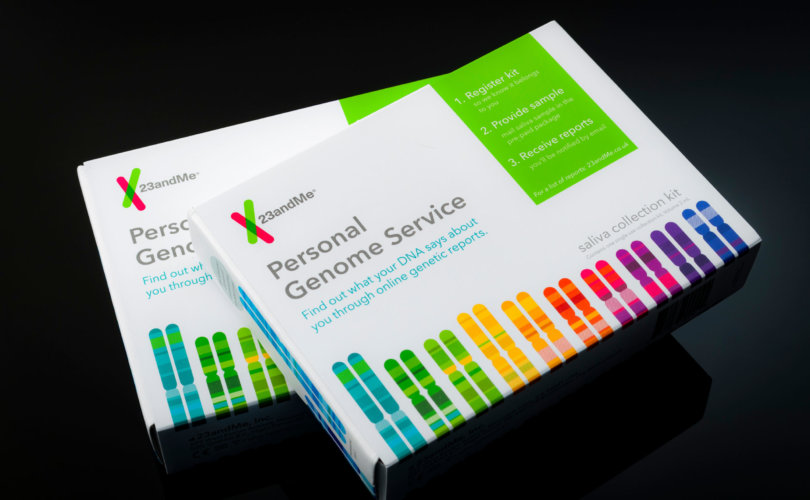(LifeSiteNews) – DNA samples collected by popular genetic testing services can be “sold off” and used to develop bioweapons targeted to a particular genetic profile, a U.S. representative warned on Friday.
“There are now weapons under development, and developed, that are designed to target specific people,” said House Intelligence Committee member Jason Crow (D-Colorado) during the Aspen Security Forum in Colorado on Friday.
“…You can actually take someone’s DNA, take their medical profile, and you can target a biological weapon that will kill that person or take them off the battlefield or make them inoperable.”
Crow referred to popular genetic profiling services such as 23andMe or Ancestry.com, which are marketed for the insights they give into one’s predispositions for certain diseases, or their ability to connect adopted children with their biological parents.
“People will very rapidly spit into a cup and send it to 23andMe and get really interesting data about their background,” Crow said. “And guess what? Their DNA is now owned by a private company. It can be sold off with very little intellectual property protection or privacy protection.”
As far back as 2013, The Scientific American accused 23andMe of being “a front end for a massive information-gathering operation against an unwitting public,” noting that while “it adamantly insists that it will not sell your personal genetic information without your explicit consent,” 23andMe “admits that it will share aggregate information about users genomes to third parties.”
The periodical cited Google, which has “hoard[ed]” our personal information and handed it over to advertisers, as a cautionary example, comparing its info-gathering ambitions to those of 23andMe.
Consumer Reports has noted that an opt-in to “research” available on these genetic testing sites provides third-party access not only to one’s DNA, but to other types of submitted data, such as about one’s family history.
Crow called for an “open” discussion on how to protect such health and DNA info through “legal and regulatory” means, “because that data is actually going to be procured and collected by our adversaries for the development of these systems.”
Crow referred to the dangers such information poses when in the hands of admitted U.S. enemies, such as Russia, cited just prior by Army Gen. Richard D. Clarke, commander of U.S. Special Operations Command.
RT pointed out, however, that the U.S. itself has been engaged in research on biological weapons, as well as on how antibodies to particular diseases vary in “populations of specific regions,” suggesting that collection of genetic information from the general population would benefit such research.

